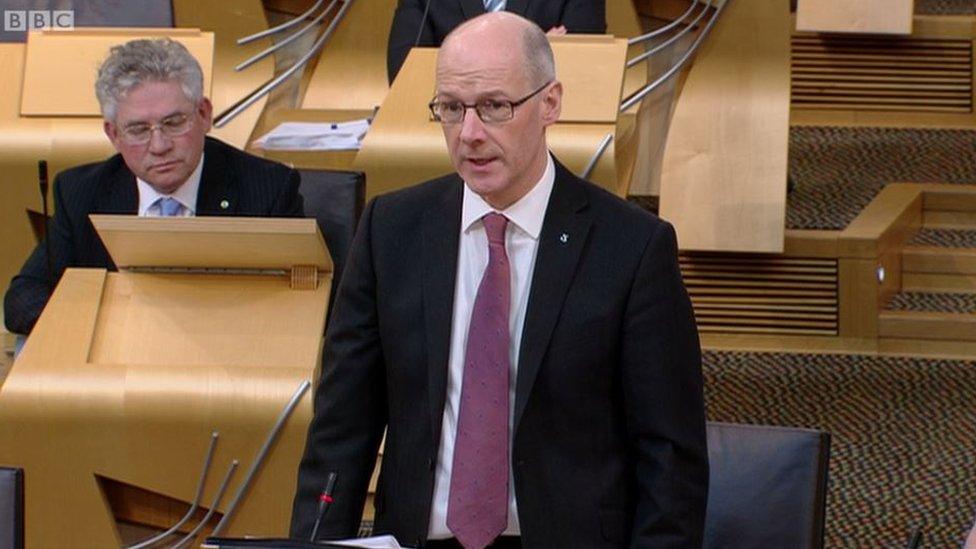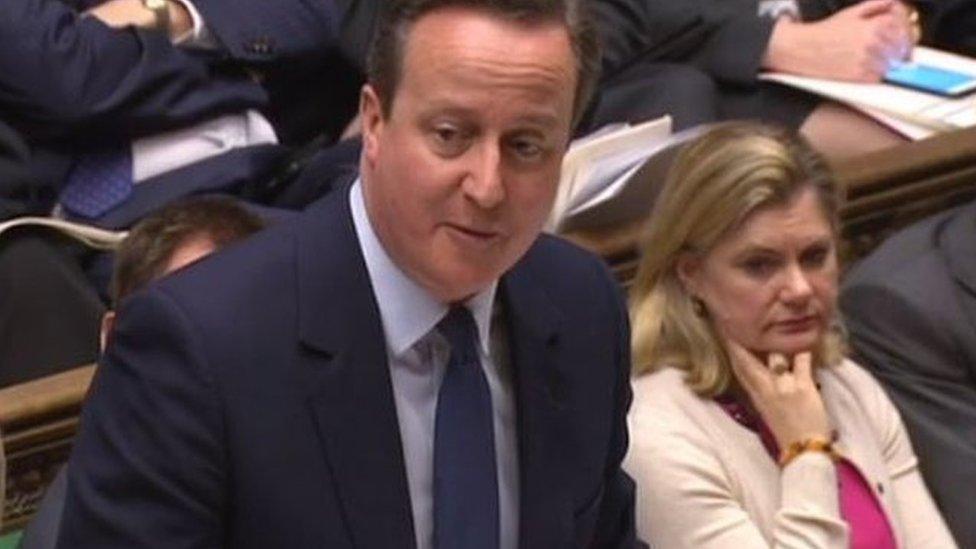Swinney submits new offer in fiscal framework talks
- Published

John Swinney has submitted fresh proposals to his Treasury counterparts
Scotland's finance secretary John Swinney has submitted a fresh proposal in talks to establish a "fiscal framework" for new devolved powers.
The Scottish and UK governments have been locked in talks about a financial deal, with deadlines pushed back due to disagreements over key terms.
Prime Minister David Cameron has said the deal needs to be fair to taxpayers in Scotland and the rest of the UK.
Mr Swinney said UK taxpayers would "not lose a single penny" under his plans.
The fiscal framework is the financial structure which will underpin new powers being devolved north of the border as part of the Scotland Bill.
First Minister Nicola Sturgeon dismissed the Treasury's previous offer on the matter as resulting in an "almost £3bn cut" for the Scottish budget.
The two parties disagree on a principle called for by the Smith Commission on new powers for Scotland known as "no detriment", which underlines that neither the Scottish or UK budgets should suffer from the terms agreed upon.
However, they disagree on what form this should take, particularly over the matter of population growth. Scotland's population is expected to grow more slowly than that of the UK in the coming years, which could impact on the economy north of the border.
Ms Sturgeon said the Treasury seemed to be trying to argue in terms of what detriment should be imposed on Scotland, and her spokesman later described the UK government's position on the matter as "increasingly isolated".

New financial powers, including on tax and borrowing, are due to be handed to Holyrood
Outlining his latest proposal to his Treasury counterpart Greg Hands, Mr Swinney said taxpayers in the rest of the UK "are no better or worse off" under his terms.
He said: "Under the Scottish government's method, taxpayers in the rest of the UK will see no detriment. They do not lose a single penny under these plans.
"And it will ensure that the Scottish budget bears the risk of population changes relative to the rest of the UK via the Barnett formula.
'Basis of a deal'
"In line with the Smith agreement, the Scottish budget will bear the full financial costs or reap the full rewards of decisions taken here in Scotland. And our proposals will see Scotland bear the economic risk of delivering growth, via tax receipts.
"This proposal addresses each of the specific technical concerns the UK government has raised publicly and privately. Agreement on indexation would allow us to focus on agreeing the remaining outstanding matters under the Fiscal Framework.
"I hope we now have the basis of a deal."
David Cameron: "I want the SNP, here and in Holyrood, to have to start making decisions."
Mr Cameron told MPs at his weekly questions session that no-one was "keener" than he was to reach an agreement on the deal, adding that "there has to be fairness across the rest of the UK too".
However, in a letter to Ms Sturgeon he warned that the Scottish government must "be prepared to move towards us" to reach a compromise agreement.
The prime minister said it would be "very difficult" for him to "explain to taxpayers in the rest of the UK that Scotland will stop paying income tax into the central pot yet somehow still receive a share of it".
Holyrood's devolution committee has called for both sides to give a "full explanation of their position on a fiscal framework" by 23 February, when they will be called to give evidence before MSPs.
Convener Bruce Crawford said there would be "very substantial impacts" on the Scottish Parliament's ability to scrutinise the deal before dissolution on 23 March if a deal is not struck soon.
- Published11 February 2016

- Published10 February 2016

- Published8 February 2016
